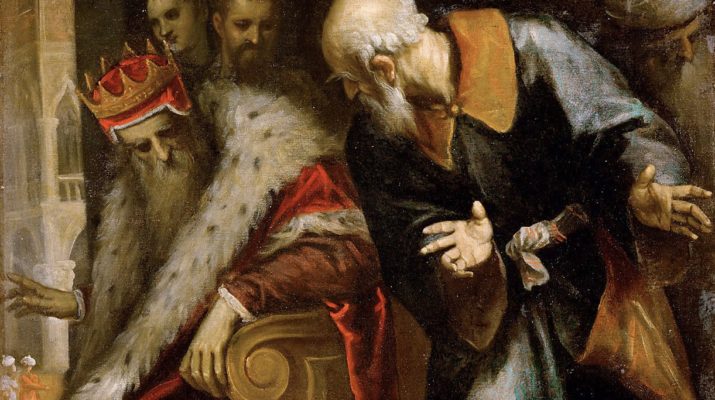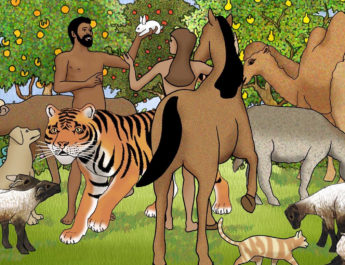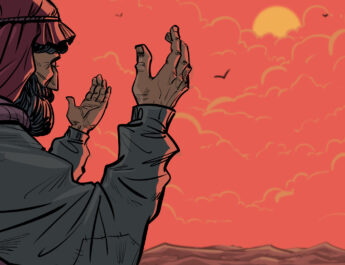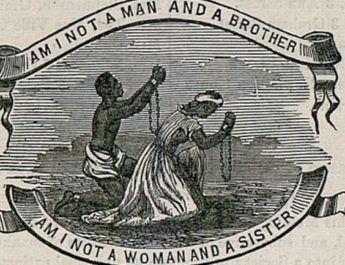2 Samuel 11:26-12:13a
Ordinary B36
BibleHub
11:26 When the wifeA of UriahB heardC thatD
Notes on verse 11:26a
A “wife” = ishshah. From ish (man); perhaps from enosh (human, humankind, mortal); from anash (to be weak, sick, or frail). This is woman, wife, or female.
B “Uriah” = Uriyah. From ur (fire, light, the east); {from or (to be or become light, shine)} + Yah (the shortened form of the name of the God of Israel; God, Lord); {from YHVH (proper name of the God of Israel; God, Lord; the self-existent or eternal one); from havah (to become) or hayah (to be, become, happen)}}. This is Uriah or Urijah, a name meaning “flame of the Lord,” “the Lord is light,” “light of the Lord.” See https://www.abarim-publications.com/Meaning/Uriah.html
C “heard” = shama. This is to hear, call, consent, or consider. It implies listening intelligently, giving attention, and, because of these two factors, obedience and action are often implied.
D {untranslated} = Uriyah. Same as “Uriah” in v11:26. See note B above.
her husbandE was dead,F she made lamentationG for him.H
Notes on verse 11:26b
E “husband” = ish. Related to “wife” in v11:26. See note A above.
F “was dead” = mut. This is to die in a literal or figurative sense. It can also refer to being a dead body.
G “made lamentation” = saphad. This is to wail, mourn. Properly, it is lamenting by tearing one’s hair and beating one’s chest. It implies wailing.
H “him” = baal. From baal (to marry, have dominion, be master). This is lord, owner, ally, master, or archer.
27 When the mourningI was over,J DavidK sentL and broughtM her to his house,N
Notes on verse 11:27a
I “mourning” = ebel. Form abal (to mourn, bewail). This is mourning or lamentation.
J “was over” = abar. This is to pass over or cross over. It is used for transitions, whether literal or figurative. It can also mean to escape, alienate, or fail. This is the root verb from which “Hebrew” is drawn.
K “David” = David. From the same as dod (beloved, love, uncle); the root may mean to boil, which is used figuratively to describe love. So, this implies someone you love such as a friend, a lover, or a close family member like an uncle. David’s name likely means something like “beloved one.”
L “sent” = shalach. This is to send out, away, send for, forsake. It can also mean to divorce or set a slave free.
M “brought” = asaph. This is to gather, assemble, or bring. It can also mean to take away, destroy, or remove.
N “house” = bayit. Probably from banah (to build, make, set up, obtain children; to build literally or figuratively). This is house, court, family, palace, temple.
and she becameO his wife, and boreP him a son.Q
Notes on verse 11:27b
O “became” = hayah. Related to “Uriah” in v11:26. See note B above.
P “bore” = yalad. This is to bear or bring forth. It can mean to act as midwife or to show one’s lineage. This is often used for birth or begetting.
Q “son” = ben. Related to “house” in v11:27. Perhaps from banah (see note N above). This is son, age, child. It is son in a literal or figurative sense.
But the thingR that David had doneS displeasedT theU Lord,V
Notes on verse 11:27c
R “thing” = dabar. From dabar (to speak, declare, discuss). This is speech, a word, a matter, an affair, charge, command, message, promise, purpose, report, request. It is a word, which implies things that are spoken of in a wide sense.
S “done” = asah. This is to make, do, act, appoint, become in many senses.
T “displeased” = ra’a’. Literally, this is to destroy something by breaking it into pieces. Figuratively, it is to cause something to be worthless or bad physically, socially, or morally. This word can be to be evil, bad, afflict, displease, harm, break down, do mischief. This is the root where the Hebrew word for “evil” comes from. The concept includes anything that is not how it ought to be: a natural disaster, a disfigurement, illness, pain, sin, wickedness, etc. It is less that a hurricane or deformity is evil and more that it goes against how God generally orders the universe. Here, harm and destruction is categorically said to be antithetical to God’s will for humanity.
U {untranslated} = ayin. This is eye in a literal or figurative sense so eye, appearance, favor, or a fountain (the eye of the landscape).
V “Lord” = YHVH. Related to “Uriah” in v11:26 & “become” in v11:27. See note B above.
12:1 and the Lord sent NathanW to David. He cameX to him, and said to him, “There wereY twoZ menAA
Notes on verse 12:1a
W “Nathan” = Nathan. From natan (to give, put, set, offer; to give literally or figuratively). This is Nathan, meaning “given” or “[God] gives.”
X “came” = bo. This is to enter, come in, advance, fulfill, bring offerings, enter to worship, attack. It can also have a sexual connotation.
Y “were” = hayah. Same as “became” in v11:27. See note O above.
Z “two” = shenayim. From sheni (double, again, another, second); from shanah (to fold, repeat, double, alter, or disguise). This is two, both, second, couple.
AA “men” = enosh. Related to “wife” and “husband” in v11:26. See note A above.
in a certainBB city,CC the oneDD richEE and the otherFF poor.GG
Notes on verse 12:1b
BB “certain” = echad. Perhaps from achad (to unify, continue on a path; figuratively, to gather one’s thoughts). This is the number one, first, united. It can also be alone, altogether, a certain, a few.
CC “city” = iyr. From uwr (to awaken or wake oneself up). This can mean excitement in the sense of wakefulness or city. Properly, this is a place that is guarded. Guards kept schedules according to watches. This sense of the word would include cities as well as encampments or posts that were guarded.
DD “one” = echad. Same as “certain” in v12:1. See note BB above.
EE “rich” = ashir. From ashar (to be rich, gain, accumulate). This is rich in a literal or figurative sense. It can also be noble or a rich person.
FF “other” = echad. Same as “certain” in v12:1. See note BB above.
GG “poor” = rush. This is in want, lack, poor, needy.
2 The rich man hadHH very manyII flocksJJ and herds;KK
Notes on verse 12:2
HH “had” = hayah. Same as “became” in v11:27. See note O above.
II “many” = rabah. This is increasing in any aspect whether quantity, authority, size, quality, greatness, etc.
JJ “flocks” = tson. This is a flock of sheep and goats.
KK “herds” = baqar. From baqar (to plow, break forth; figuratively, to inquire, inspect, consider). This is cattle – an animal used for plowing.
3 but the poor man had nothing but one littleLL ewe lamb,MM which he had bought.NN
Notes on verse 12:3a
LL “little” = qatan. From quwt (grieved, cut off, to detest). This is least, small, young, little one. It is literally smaller whether in amount or size. Figuratively it is smaller in the sense of younger or less important.
MM “ewe lamb” = kibsah. 8x in OT. From the same as kebes (young male sheep – having just reached the age where it can butt other sheep). This is a ewe lamb.
NN “bought” = qanah. This is to acquire, create, purchase, own. Its root may mean to smith or to produce.
He brought it up,OO and it grew upPP with him and with his children;QQ, RR
Notes on verse 12:3b
OO “brought…up” = chayah. This is to live or keep alive in a literal or figurative sense. So, it an be revive, nourish, or save.
PP “grew up” = gadal. This is to grow up, become great, become wealthy – to advance. The root meaning may be to twist in the sense of the process of growing.
QQ “children” = ben. Same as “son” in v11:27. See note Q above.
RR {untranslated} = yachad. From yachad (to join, be united). This is a unit, both, altogether, unitedness, alike.
it used to eatSS of his meager fare,TT and drinkUU from his cup,VV
Notes on verse 12:3c
SS “eat” = akal. This is to eat, devour, burn up, or otherwise consume. It can be eating in a literal or figurative sense.
TT “meager fare” = path. 15x in OT. From pathath (to crumble, open, break). This is a piece, morsel, or fragment.
UU “drink” = shathah. This is to drink literally or figuratively. It could also be a drinker.
VV “cup” = kos. This is a cup or it could refer to an owl since theirs eyes look similar to cups.
and lieWW in his bosom,XX and it was like a daughterYY to him.
Notes on verse 12:3d
WW “lie” = shakab. This is to lie down, lodge. It is lying for sleep, sex, or other reasons.
XX “bosom” = cheq. Root may mean to enclose. This is bosom in a literal or figurative sense. So, this could be arms, lap, or midst. It can also be care or cherish.
YY “daughter” = bat. Related to “house” and “son” in v11:27. From ben (see note Q above). This is daughter in a literal or figurative sense.
4 Now there came a travelerZZ to the rich man,AAA and he was loathBBB to takeCCC one of his own flock or herd to prepareDDD for the wayfarerEEE who had come to him, but he took the poor man’s lamb, and prepared that for the guestFFF who had come to him.”
Notes on verse 12:4
ZZ “traveler” = helek. 2x in OT. From halak (to go, come, walk; to walk literally and figuratively; of people and animals; how we walk according to God’s way or against it; the walk of life). This is a journey, traveler, or a flowing.
AAA “man” = ish. Same as “husband” in v11:26. See note E above.
BBB “was loath” = chamal. This is to spare, commiserate, show compassion.
CCC “take” = laqach. This is to take, accept, carry away, receive. It can also have the sense of take a wife or take in marriage.
DDD “prepare” = asah. Same as “done” in v11:27. See note S above.
EEE “wayfarer” = arach. 5x in OT. This is to go, travel, wander.
FFF “guest” = ish. Same as “husband” in v11:26. See note E above.
5 Then David’s angerGGG was greatly kindledHHH against the man. He said to Nathan, “As the Lord lives,III, JJJ the man who has done this deserves to die;KKK
Notes on verse 12:5
GGG “anger” = aph. From anaph (to be angry; properly, breathing hard as a signifier of being enraged). This properly refers to the nose or nostril and by extension the face. It can specifically refer to anger or wrath as one breathes hard and nostrils flare in times of great anger.
HHH “kindled” = charah. Perhaps related to charar (to be hot, burn, glow, melt, be scorched; figuratively, to incite passion, be angry). This is to be displeased, burn with anger, glow, become warn. Figuratively it is a blaze of anger, zeal, or jealousy.
III “lives” = chay. Related to “brought…up” in v12:3. From chayah (see note OO above). This is alive, living, lifetime. It can also be used to describe someone’s age. It can refer to animals, plants, water, or a company or congregation of people. It is life in a very broad sense.
JJJ {untranslated} = ben. Same as “son” in v11:27. See note Q above.
KKK “die” = mavet. Related to “was dead” in v11:26. From mut (see note F above). This can be death, deadliness, the dead, or the place where the dead go. It can be used figuratively for pestilence or ruin.
6 he shall restoreLLL the lamb fourfold,MMM because he did this thing, and because he had no pity.”NNN
Notes on verse 12:6
LLL “restore” = shalam. This is to be complete or sound – to have safety mentally, physically, or extending to one’s estate. So, if these things are safe and complete, the implication is that one would be friendly; and, if being friendly, one would make amends and that friendship would be reciprocated. This is the root verb that “shalom” comes from, the Hebrew word for peace.
MMM “fourfold” = arbatayim. 1x in OT. From arba four); from raba (to make square or be four-sided); perhaps from raba (to lie down flat; can be to lie for mating). This is fourfold.
NNN “had…pity” = chamal. Same as “was loath” in v12:4. See note BBB above.
7 Nathan said to David, “You are the man! Thus says the Lord, the GodOOO of Israel:PPP I anointedQQQ you kingRRR over Israel,
Notes on verse 12:7a
OOO “God” = Elohim.
PPP “Israel” = Yisrael. Related to “God” in v12:7. From sarah (to persist, exert oneself, contend, persevere, wrestle, prevail) + el (see note OOO above). This is Israel, meaning God strives or one who strives with God; new name for Jacob and for his offspring. This refers to the people and to the land.
QQQ “anointed” = mashach. This is smear, paint, spread, or paint. It can also be to rub with oil or, otherwise stated, to anoint. This implies a consecration. This root verb is where the word “messiah” comes from.
RRR “king” = melek. From malak (to be or become king or queen, to rise to the throne, to be crowned; by implication, to take counsel). This is king or royal.
and I rescuedSSS you from the handTTT of Saul;UUU
Notes on verse 12:7b
SSS “rescued” = natsal. This is to snatch someone or something away in a good sense – as rescue, defend, or deliver – or in a bad sense – as strip or plunder.
TTT “hand” = yad. This is hand, ability, power. Hand in a literal sense, but also what one can do or the means by which one does it.
UUU “Saul” = Shaul. From shaal (to ask, inquire, beg, borrow, desire, request; can also mean demand). This is Saul or Shaul, meaning “asked of the Lord.”
8 I gaveVVV you your master’sWWW house, and your master’s wives into your bosom, and gave you the house of Israel and of Judah;XXX and if that had been too little,YYY I would have addedZZZ as much more.AAAA
Notes on verse 12:8
VVV “gave” = natan. Related to “Nathan” in v12:1. See note W above.
WWW “master’s” = adon. From a root that means ruling or being sovereign. This is lord, master, or owner.
XXX “Judah” = Yehudah. Probably from yadah (to throw one’s hands into the air in a gesture of praise); from yad (hand). This is Judah, meaning “praised.”
YYY “too little” = me’at. From ma’at (being or becoming small, decrease, diminish, pare off). This is a little or few, lightly little while, very small matter.
ZZZ “added” = yasaph. This is to add, increase, continue, exceed.
AAAA “as much more” = hennah + hennah. Literally “like them and like them.”
9 Why have you despisedBBBB the wordCCCC of the Lord, to do what is evilDDDD in his sight?EEEE
Notes on verse 12:9a
BBBB “despised” = bazah. This is to despise, hold in contempt, disesteem, or a person who is vile.
CCCC “word” = dabar. Same as “thing” in 11:27. See note R above.
DDDD “evil” = ra’. Related to “displeased” in v11:27. From ra’a’ (see note T above). This is bad, disagreeable, that which causes pain, misery, something having little or no value, something that is ethically bad, wicked, injury, calamity. This refers to anything that is not what it ought to be – a natural disaster, a disfigurement, an injury, a sin.
EEEE “sight” = ayin. Same as {untranslated} in v11:27. See note U above.
You have struck downFFFF Uriah the HittiteGGGG with the sword,HHHH and have taken his wife to be your wife, and have killedIIII him with the sword of the Ammonites.JJJJ
Notes on verse 12:9b
FFFF “struck down” = nakah. This is to hit whether lightly or severely. It can be used in a literal or figurative sense. So, this could be beat, punish, give wounds, kill, or slaughter.
GGGG “Hittite” = Chitti. From cheth (Heth or Cheth; one of Canaan’s sons from whom perhaps the Hittites descend) OR from hatat (terror, lacking strength or courage); perhaps from hata (to seize; often used of coals from a fire). This is Hittite – perhaps meaning terrors or terrible. Seehttps://www.abarim-publications.com/Meaning/Hittite.html#.XyMgpp5KhPY
HHHH “sword” = chereb. From charab (to attack, slay). This is any sharp instrument like a sword, dagger, axe, or mattock.
IIII “killed” = harag. This is to strike with deadly intent so it can be kill, destroy, murder, or put to death.
JJJJ “Ammonites” = ben + Ammon. Literally “children of Ammon.” Ben is the same as “son” in v11:27. See note Q above. Ammon if from am (people or nation; a tribe, troops or armies, or figuratively to refer to a flock of animals); from amam (to darken, hide, associate; creating shadows by huddling together). This is Ammon or Ammonite, perhaps meaning “tribal,” “a people,” “great people,” or “inbred.” See https://www.abarim-publications.com/Meaning/Ammon.html
10 Now therefore the sword shall neverKKKK departLLLL from your house, for you have despised me, and have taken the wife of Uriah the Hittite to be your wife. 11 Thus says the Lord:MMMM I will raise upNNNN troubleOOOO against you from within your own house;
Notes on verses 12:10-11a
KKKK “never” = lo…ad + olam. Literally “not until eternity.” Olam is a long scope of time whether in the past (antiquity, ancient time) or in the future (eternal, everlasting).
LLLL “depart” = sur. This is to turn aside in a literal or figurative sense – to depart, decline, rebel, remove, or withdraw.
MMMM {untranslated} = hen. This is a remark of surprise or excitement: lo! Behold! It can also mean if or though.
NNNN “raise up” = qum. To arise, stand, accomplish, establish, abide. This is rising as in rising against, getting up after being sick or asleep, arising from one state to another, becoming powerful, or rising for action. It can also be standing in a figurative sense.
OOOO “trouble” = ra’. Same as “evil” in v12:9. See note DDDD above.
and I will take your wives before your eyes,PPPP and give them to your neighbor,QQQQ and he shall lie with your wives in the sight of this very sun.RRRR 12 For you did it secretly;SSSS but I will do this thing beforeTTTT all Israel, and before the sun.”
Notes on verses 12:11b-12
PPPP “eyes” = ayin. Same as {untranslated} in v11:27. See note U above.
QQQQ “neighbor” = rea. From raah (perhaps association with). This is an associate, companion, friend, neighbor, or other. It can also be used for close family or for a lover.
RRRR “sun” = shemesh. This is sun or toward the east. Its root may mean being brilliant. Figuratively, this could be a ray or an arch.
SSSS “secretly” = sether. From sathar (hide, conceal, or be absent; hiding because something is covered – used in a literal or figurative sense). This is covering, shelter, protection, hiding place. It can be hidden by a mountain, by clouds, in the womb, in a matter of secrecy, through slander, or of nations.
TTTT “before” = neged. From nagad (to declare, make conspicuous, stand in front, manifest, predict, explain). This is in front of, opposite to. It can refer to a counterpart or partner, one corresponding to or in the sight of.
13 David said to Nathan, “I have sinnedUUUU against the Lord.”
Nathan said to David, “Now the Lord has put awayVVVV your sin;WWWW you shall not die.XXXX
Notes on verses 12:13
UUUU “sinned” = chata. This is properly to miss, and so figuratively it is used for sinning, bearing the blame. It implies a forfeiture or loss of something.
VVVV “put away” = abar. Same as “was over” in v11:27. See note J above.
WWWW “sin” = chatta’ah. Related to “sinned” in v12:13. From chata (see note UUUU above). This is sin itself as well as punishment for sin. It is sometimes used specifically to refer to sin that is habitual.
XXXX “die” = mut. Same as “was dead” in v11:26. See note F above.
Image credit: “Prophet Nathan Admonishes David” by Palma il Giovane, 1600s.




